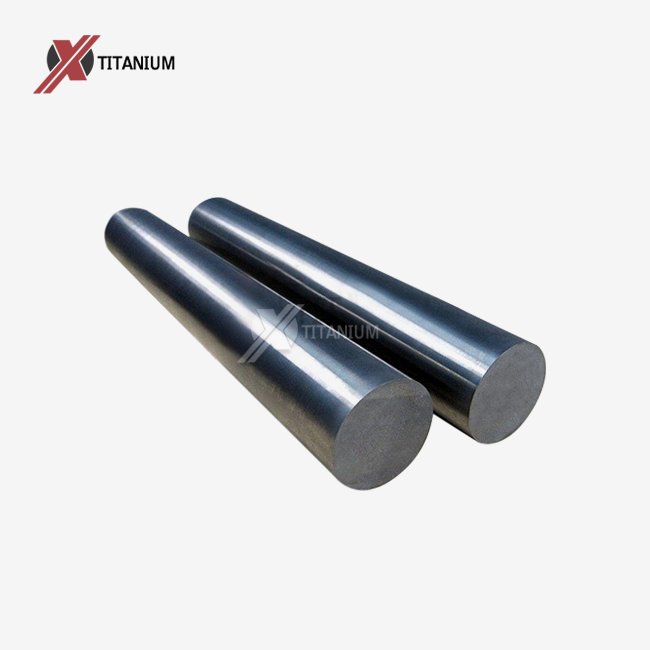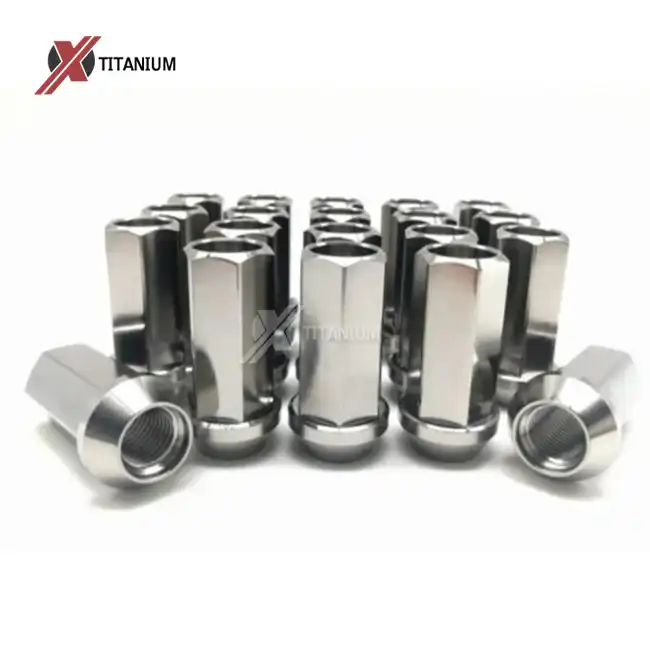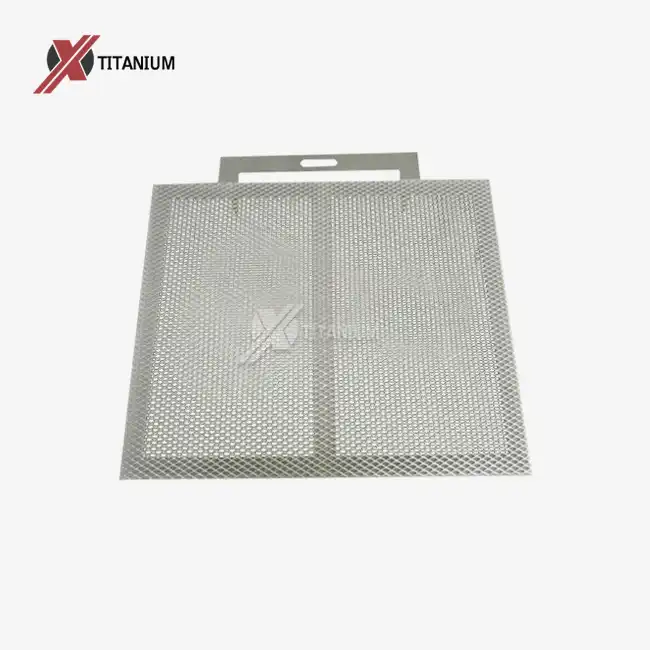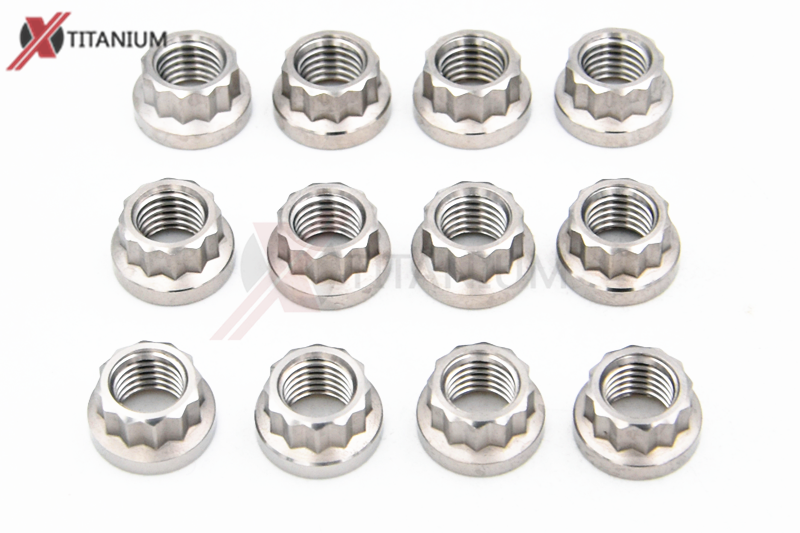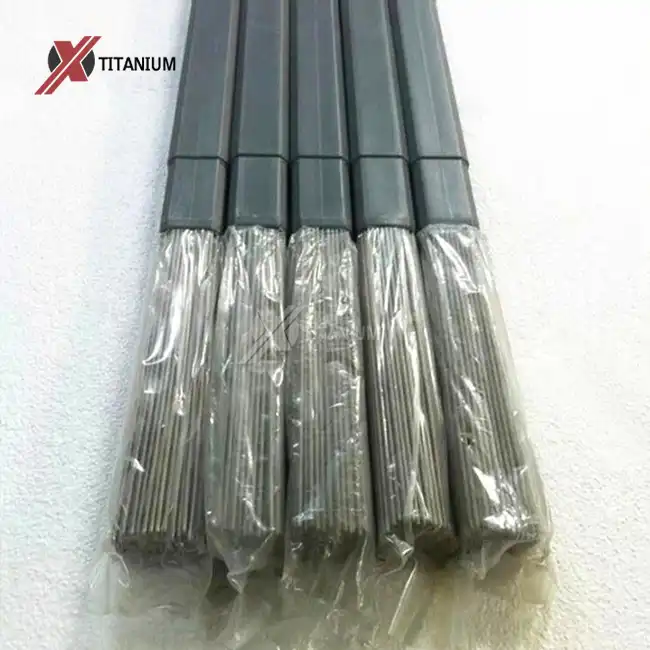Understanding Titanium Grades and Their Properties
Composition and Characteristics of Different Titanium Grades
Titanium grades are classified based on their chemical composition and mechanical properties. The most commonly used grades for titanium round rods include Grade 1, Grade 2, Grade 3, Grade 4, and Grade 5. Each grade offers unique characteristics that cater to specific industrial requirements.
Grade 1 titanium is the purest form, known for its excellent formability and superior corrosion resistance. However, it has the lowest strength among all grades. Grade 2, often referred to as "commercially pure" titanium, strikes a balance between corrosion resistance and moderate strength, making it suitable for chemical processing applications.
Grade 3 and Grade 4 titanium offer incrementally higher strength levels while maintaining good corrosion resistance. These grades are often used in marine applications and medical implants. Grade 5, also known as Ti-6Al-4V, is an alpha-beta alloy that contains 6% aluminum and 4% vanadium. This composition results in significantly higher strength compared to the other grades, while still maintaining excellent corrosion resistance.
Strength and Corrosion Resistance Comparison
When comparing the strength and corrosion resistance of different titanium grades, it's essential to consider both yield strength and corrosion performance. Grade 1 titanium has the lowest yield strength at around 170 MPa but offers the best corrosion resistance. As we move up the grades, the yield strength increases, with Grade 5 reaching up to 880 MPa.
In terms of corrosion resistance, all titanium grades perform exceptionally well due to the formation of a stable oxide layer on their surface. However, the lower grades (1-4) generally exhibit slightly better corrosion resistance in highly aggressive environments compared to Grade 5. Nevertheless, Grade 5 still offers excellent corrosion protection that surpasses many other metals and alloys.
The choice between different grades of titanium round rods often comes down to the specific application requirements. For instance, in aerospace applications where high strength and light weight are crucial, Grade 5 is the preferred choice. In contrast, for chemical processing equipment where extreme corrosion resistance is paramount, Grade 2 might be more suitable.
Factors Influencing the Selection of Titanium Round Rods
Application-Specific Requirements
Selecting the appropriate titanium round rod grade depends heavily on the intended application. Different industries have varying priorities when it comes to material properties. For instance, the aerospace industry often requires materials with high strength-to-weight ratios and excellent fatigue resistance. In this case, Grade 5 titanium round rods are typically the go-to choice.
In medical applications, biocompatibility is a crucial factor alongside strength and corrosion resistance. Grade 23 (Ti-6Al-4V ELI), a variant of Grade 5 with extra-low interstitial elements, is often preferred for implants due to its superior biocompatibility and fatigue resistance.
For marine applications, the ability to withstand saltwater corrosion is paramount. While all titanium grades perform well in this environment, Grade 2 is often chosen for its optimal balance of corrosion resistance and cost-effectiveness.
Environmental Considerations
The operating environment plays a significant role in determining the most suitable titanium grade for round rods. Factors such as temperature, pressure, and exposure to corrosive substances must be carefully evaluated.
In high-temperature applications, such as in the aerospace or energy sectors, Grade 5 titanium round rods are often preferred due to their ability to maintain strength at elevated temperatures. For cryogenic applications, Grade 9 (Ti-3Al-2.5V) might be more suitable due to its excellent low-temperature performance.
When exposed to highly corrosive chemicals, such as in the chemical processing industry, the purer grades (Grade 1 or 2) might be more appropriate due to their superior corrosion resistance. However, if mechanical strength is also a concern, Grade 7 (Ti-0.2Pd) or Grade 11 (Ti-0.2Pd) could provide an excellent balance of corrosion resistance and strength.
Cost and Availability Considerations
While performance characteristics are crucial, cost and availability also play significant roles in the selection of titanium round rods. Generally, the higher the grade, the more expensive the material becomes due to the alloying elements and more complex manufacturing processes involved.
Grade 2 titanium is often considered the most cost-effective option for many applications, offering a good balance of properties at a reasonable price point. Grade 5, while more expensive, is widely available due to its popularity across various industries.
It's also worth considering the long-term cost implications. While a higher-grade titanium round rod might have a higher initial cost, its superior properties could lead to longer service life and reduced maintenance costs, potentially resulting in lower total cost of ownership.
Optimizing Performance of Titanium Round Rods
Surface Treatment and Finishing Techniques
Surface treatment and finishing techniques can significantly enhance the performance of titanium round rods, particularly in terms of corrosion resistance and wear properties. One common technique is anodizing, which creates a thicker and more durable oxide layer on the surface of the titanium. This process not only improves corrosion resistance but also allows for coloration of the surface for aesthetic or identification purposes.
Nitriding is another surface treatment that can dramatically improve the wear resistance and hardness of titanium round rods. This process involves diffusing nitrogen into the surface layer of the titanium, creating a hard, wear-resistant layer. This can be particularly beneficial in applications where the titanium round rod is subject to abrasive conditions.
For applications requiring extreme smoothness or specific surface characteristics, various polishing techniques can be employed. These range from mechanical polishing to electropolishing, each offering different advantages in terms of surface finish and properties.
Heat Treatment and Alloying
Heat treatment processes can be used to optimize the mechanical properties of titanium round rods. For Grade 5 titanium, solution treating and aging (STA) can significantly increase strength and hardness. This process involves heating the material to a specific temperature, quenching it, and then reheating it to a lower temperature for a set period.
Alloying is another method to enhance the properties of titanium round rods. While Grade 5 (Ti-6Al-4V) is already an alloy, custom alloys can be developed for specific applications. For instance, adding small amounts of ruthenium or palladium can dramatically improve corrosion resistance in reducing acid environments.
Quality Control and Testing
To ensure optimal performance, rigorous quality control and testing procedures are essential in the production of titanium round rods. These typically include dimensional checks, surface finish inspections, and mechanical property testing such as tensile tests and hardness measurements.
Non-destructive testing methods like ultrasonic testing or X-ray inspection can be used to detect any internal defects in the titanium round rods. For applications with stringent requirements, such as aerospace or medical implants, additional tests may be necessary to ensure compliance with industry standards.
Conclusion
In conclusion, the selection of the ideal titanium round rod involves a careful balance of strength, corrosion resistance, and application-specific requirements. While Grade 5 (Ti-6Al-4V) often emerges as the top choice for its exceptional strength-to-weight ratio and good corrosion resistance, other grades may be more suitable for specific applications. Factors such as environmental conditions, cost considerations, and performance requirements all play crucial roles in the decision-making process. By understanding the properties of different titanium grades and employing appropriate surface treatments and quality control measures, industries can optimize the performance of titanium round rods for their specific needs.
At Baoji Chuanglian New Metal Material Co., Ltd., we specialize in manufacturing high-quality titanium round rods tailored to meet diverse industrial requirements. With over a decade of experience in titanium product machining and research, we offer a wide range of titanium grades and customized solutions. Whether you need titanium round rods for aerospace, medical, marine, or chemical processing applications, our team of experts is ready to assist you in selecting the perfect product for your needs. For more information about titanium round rod factory and products, please contact us at info@cltifastener.com or djy6580@aliyun.com.
FAQ
What are the main differences between Grade 2 and Grade 5 titanium round rods?
Grade 2 titanium offers superior corrosion resistance but lower strength, while Grade 5 provides higher strength with good corrosion resistance. Grade 2 is often used in chemical processing, while Grade 5 is preferred in aerospace applications.
How does surface finish affect the performance of titanium round rods?
Surface finish can significantly impact corrosion resistance and wear properties. Techniques like anodizing can enhance corrosion resistance, while polishing can improve smoothness for specific applications.
Are titanium round rods suitable for medical implants?
Yes, certain grades of titanium round rods, particularly Grade 23 (Ti-6Al-4V ELI), are widely used in medical implants due to their biocompatibility, strength, and corrosion resistance.
References
1. Smith, J. R. (2019). "Titanium Alloys: Properties and Applications in Aerospace Engineering." Journal of Aerospace Materials, 42(3), 156-172.
2. Johnson, A. L., & Brown, T. E. (2020). "Corrosion Behavior of Titanium Grades in Marine Environments." Corrosion Science and Technology, 55(2), 89-104.
3. Zhang, Y., & Lee, K. (2018). "Surface Treatment Techniques for Titanium Round Rods: A Comprehensive Review." Surface and Coatings Technology, 310, 125-140.
4. Anderson, R. M., et al. (2021). "Comparative Study of Mechanical Properties in Different Titanium Grades for Industria l Applications." Materials Science and Engineering: A, 765, 138276.
5. Miller, S. D., & Wilson, E. J. (2017). "Optimizing Titanium Alloy Selection for Biomedical Implants: A Review." Journal of Biomedical Materials Research Part B: Applied Biomaterials, 105(8), 2135-2152.
